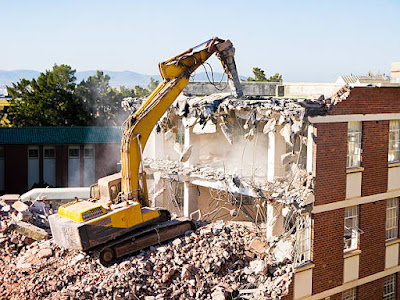The Importance of Household Waste and Recycling: Towards a Sustainable Future
In today's world, where environmental concerns are at the forefront of global discourse, understanding the importance of Household Waste And Recycling Centre is crucial. As individuals, our actions within our own homes can significantly impact the overall health of the planet. This blog aims to shed light on the significance of proper waste management, recycling practices, and their profound implications for building a sustainable future.
The Rising Concern of Household Waste
As our population grows and consumption patterns change, household waste has become a mounting concern. Rapid urbanization, excessive packaging, and the prevalence of single-use items have led to an unprecedented increase in the volume of waste generated by households. If left unaddressed, this waste poses a grave threat to our environment, ecosystems, and human health.
Environmental Impacts of Improper Waste Disposal
Improper waste disposal practices, such as indiscriminate dumping and landfilling, have severe environmental consequences. When waste is left to decompose in landfills, it releases greenhouse gasses like methane, a potent contributor to climate change. Additionally, toxic substances from improperly disposed items can contaminate soil and water sources, posing risks to both human and animal populations.
The Significance of Recycling
Recycling plays a pivotal role in mitigating the environmental impacts of household waste. By recycling materials such as paper, plastics, glass, and metals, we can conserve natural resources, reduce energy consumption, and minimize the need for landfill space. Moreover, recycling aids in the reduction of greenhouse gas emissions associated with the production of new materials from raw resources.
Sorting and Segregation
Sorting and segregating waste at the source is a vital step towards effective recycling. Implementing a comprehensive waste management system within our households enables us to separate recyclable materials from non-recyclables and hazardous waste. This practice ensures that recyclable items are diverted from landfills and sent for processing, facilitating their transformation into new products.
Educating and Engaging Communities
To achieve a sustainable future, raising awareness and fostering community engagement are paramount. Educational initiatives at schools, community centers, and through digital platforms can empower individuals to make informed choices about waste management. Governments and organizations should promote recycling programs, provide accessible recycling facilities, and incentivize responsible waste disposal practices to encourage participation and collaboration.
Conclusion
Recognizing the importance of Household Waste And Recycling Centre is vital in our collective journey towards a sustainable future. By adopting responsible waste management practices, reducing consumption, and actively participating in recycling efforts, we can make a significant impact on the environment, preserve natural resources, and safeguard the well-being of future generations. Let us each take individual responsibility for our waste and contribute to a cleaner, greener planet.



Comments
Post a Comment